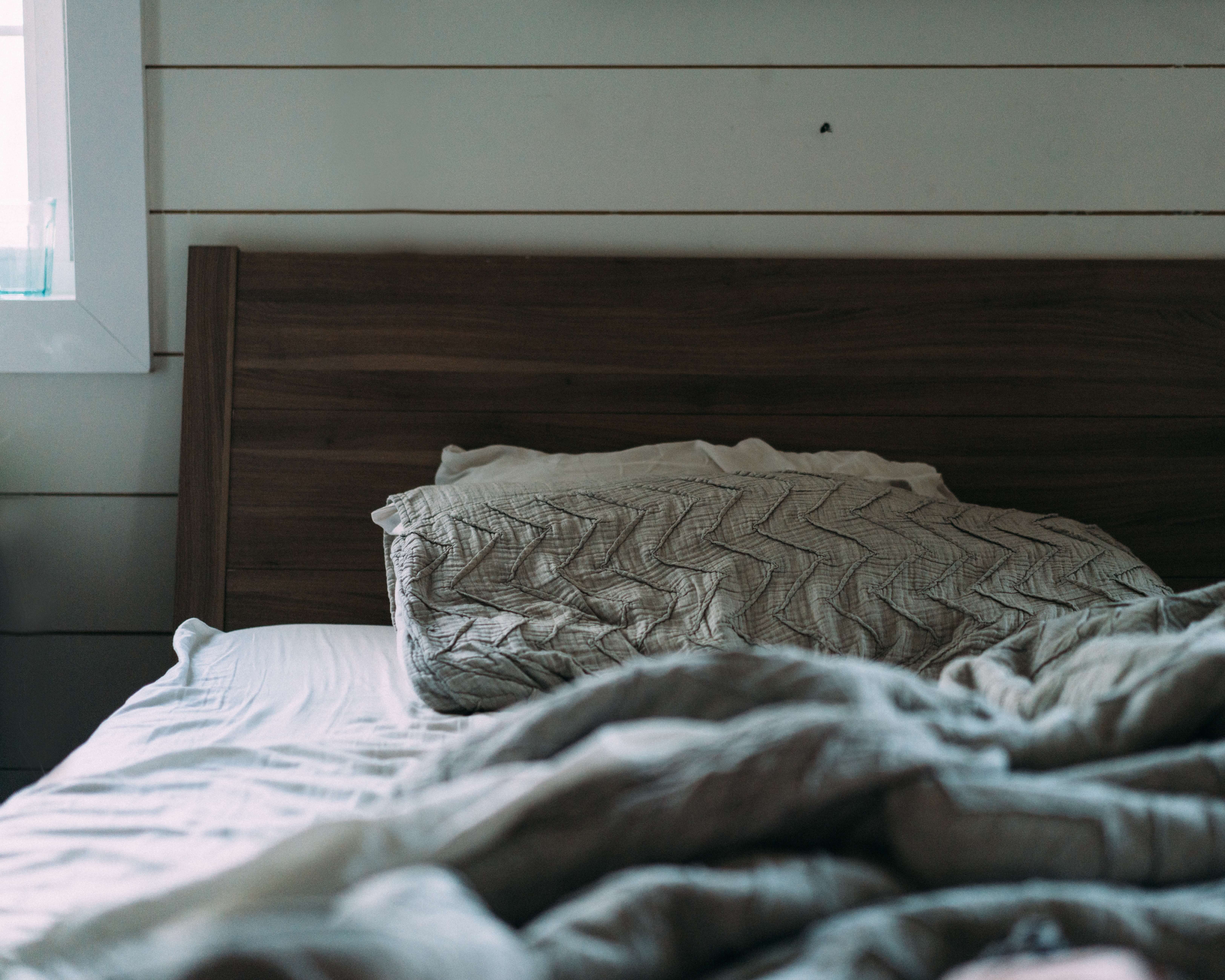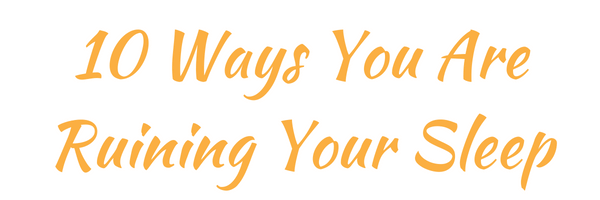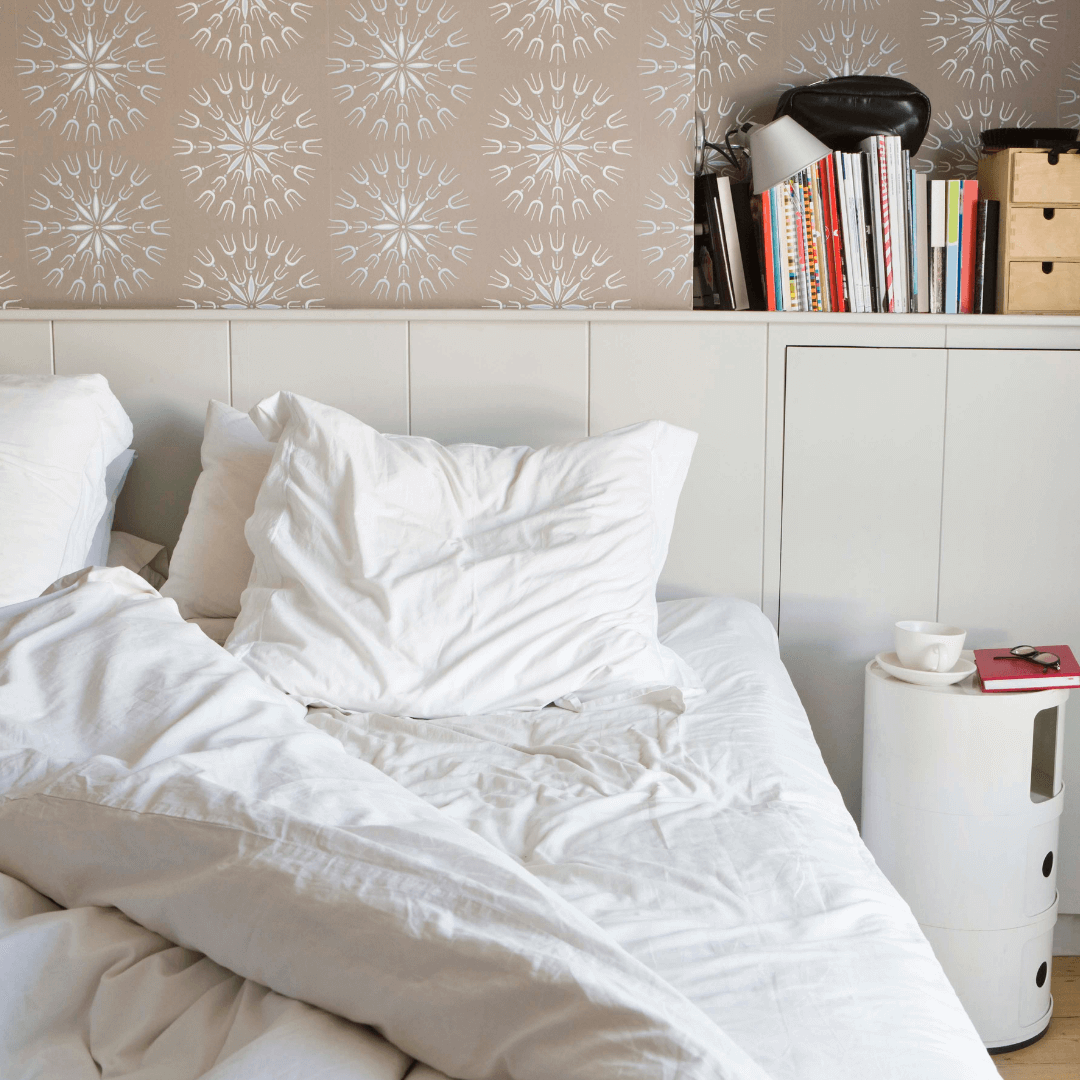Are you struggling to get enough sleep to function at your best?
Failing to factor in sufficient rest can be damaging in many ways beyond simply feeling grumpy and sluggish. Inadequate sleep leads to all kinds of problems with focus, mood, emotions, and productivity. (1)
We’ll look at ten simple tweaks you can make to improve your sleep health, but before that we’ll glance at the issue of sleep deprivation during menopause.
Menopause and Sleep
As if being assailed by the usual menopause symptoms isn’t enough, you’re highly likely to find your sleep patterns disrupted during the change – but why is this?
The first thing to keep in mind is that it’s not just you suffering from patchy sleep. With kids, careers and busy lifestyle, many women aged 40 to 60 would probably find issues with sleeping anyway. It’s only natural with so much stress and so many responsibilities.
Since menopause sees a reduction in the amount of hormones your body produces, this can provoke a degree of sleep disorder so we’ll glance at these hormones and explore how the drop in testosterone, estrogen and progesterone can wreak havoc with sleep patterns…

Testosterone
Women might not produce as much testosterone as men but it still plays a crucial role, particularly when it comes to your sex drive.
Testosterone also helps your body to produce estrogen but as you hit menopause, these testosterone levels drop.
As well as affecting libido and energy, diminishing quantities of testosterone can also dramatically influence your ability to drop off to sleep. (2)(3)
Estrogen
The principal female sex hormone, the role of estrogen extends far beyond reproductive function. Proper levels of estrogen are beneficial for heart health, mood, bone density and weight management.
Beyond this, estrogen also helps you to fall asleep by harnessing serotonin and other neurochemicals related to sleep. Not only will you find it easier to drop off when estrogen levels are in check, you’ll enjoy a better quality of sleep. (4)(5)
Since estrogen levels dip during menopause then remain low throughout postmenopause, it’s worth accepting this hormonal change for what it is, and focusing on some sensible ways to fight back by improving your overall sleep habits. We’ll outline some winning tactics below.
Progesterone
Progesterone acts as a kind of balancing agent for estrogen. As well as being a crucial hormone for pregnancy, it can also help regulate your mood.

When progesterone levels are high, you’ll feel naturally calmer and more disposed to fall asleep with ease. Menopause brings about the reverse so it’s more important than ever to pay close attention to the ways in which you can combat this losing battle of hormones without losing out on getting enough sleep. (6)
How much sleep do you actually need, though?
How Much Sleep Should You Be Getting?
For generations, 8 hours of sleep each night has been the widely accepted benchmark.
This average depends on many variables and remains largely the same, although a few tweaks have been made to the guidelines in recent years…
- Sleep Guidelines – USA: The National Sleep Foundation conducted a 2-year study that was published in Sleep Health with some tweaked sleep recommendations. Bands of suggested sleep have been narrowed in children of all ages up to 18. The NSF recommends 7 to 9 hours of sleep for adults up to the age of 64. They also added a new category for adults aged 65+, suggesting 7 to 8 hours is enough sleep. (7) (8)
- Sleep Guidelines – Canada: The Canadian Pediatric Society published guidelines for how much sleep children need is in line with the American recommendations. For adults, 7 to 8 hours remains the suggested goal. (9) (10)
Now you can see why you are fighting to sleep well during menopause and how much sleep you should strive for. Here are 10 ways in which you could be sabotaging your sleep patterns without being aware of it.

1) Drinking Too Much Caffeine
If you drink too much coffee, tea or caffeinated soda, you can end up with disrupted sleep. Not only will you find problems entering dreamland, you’ll find your quality of REM sleep is worsened if you overdo the caffeine.
Since caffeine remains in your system for a surprisingly long time, it’s a smart move to switch to decaffeinated beverages during the 6 hours leading up to bedtime. (11)
2) Temperature of Your Bedroom
While it might be tempting to crank up the heat in the bedroom, this runs counter to your body’s core temperature dropping as you edge toward slumber.
Even minor fluctuations in room temperature can have a significant effect on sleep. (12)
Try to maintain a cooler temperature when possible to promote a better quality of sleep. This has the double-edged advantage of helping to mitigate hot flashes, one of the more frustrating menopause symptoms.
3) Low-Quality Mattress
Sometimes it’s easy to overlook the most obvious reasons you’re not getting the sleep you need. If you’re trying to sleep on a sub-par mattress, this alone will make things awkward.
Make sure the mattress is nice and clean while it should be neither too hard nor too soft.
You should also ensure all bedding is frequently changed and you should replace the mattress completely every ten years or so.
Get this foundation right and you should see an improvement in the way you fall asleep at night.
4) Too Much Clutter In Your Bedroom
While not everyone wants to go full minimalist, you should strip the bedroom of everything unrelated to sleeping.
A large wall-hanging TV might make a striking statement but it will end up hindering your sleep.
Keep the bedroom for its intended purpose and you’ll psychologically associate bed with sleep.
5) Sleeping Too Much During The Day
Sleeping during the day is not generally advisable unless you can limit it to a brief twenty to thirty-minute power nap.
Take a much longer siesta and you’ll end up setting yourself up for problems at bedtime. (13)
6) Eating Directly Before Bed
Try to finish your supper or snack at least an hour before you sleep.
While it’s not a good idea to try sleeping when you’re hungry, you need to allow your body time to digest your food or you’ll likely end up with a restless slumber. (14)
7) Smoking
As if there weren’t enough reasons to stop smoking, nicotine is a stimulant that can prevent you from falling asleep easily. (15)
Not only will your overall calibre of sleep nosedive, smoking can also worsen sleep disorders like sleep apnea. (16)(17)
Do yourself a favour and quit smoking as soon as possible.
8) Stress and Arguing Before Bed
They say you should never go to sleep without resolving an argument and this holds some weight. (18)
Stress of any kind is the enemy of sleep so, unless you fancy tossing and turning for hours, don’t let the sun set on any discord and try to relax as much as possible before heading up to bed.
9) Using Electronic Devices in Bed
A surefire way to keep yourself alert and awake is to continue using your cell phone or tablet in bed.
The blue light emanating from your electronic devices can affect levels of melatonin and run riot with your sleep patterns. (19)
Be disciplined and leave your gadgets alone once it’s time to hit the sack.
10) Working Irregular Hours
Although for many it’s difficult to avoid, if you work a night shift, this change in normal routine can also disrupt melatonin levels creating sleeping problems. (20)
To add salt to the wound, there’s every chance you’ll fail to get the sleep you need during the day as there are so many disruptions and so much noise.
If you can avoid it, sidestep night shifts whenever possible.
REFERENCES
- 1) https://www.nhlbi.nih.gov/health-topics/sleep-deprivation-and-deficiency
- 2) https://www.everydayhealth.com/sexual-health/sexual-dysfunction/testosterone-and-low-libido.aspx
- 3) https://www.ncbi.nlm.nih.gov/pubmed/21890115
- 4) http://jcsm.aasm.org/articles/010312.pdf
- 5) https://www.thesleepdoctor.com/2018/01/05/menopause-affects-sleep/?slimstat-opt-out=false
- 6) https://doctordoni.com/2015/02/hormones-and-sleep-disruption-in-menopause-and-peri-menopause/
- 7) https://sleepfoundation.org/
- 8) https://www.sleephealthjournal.org/article/S2352-7218%2815%2900015-7/fulltext
- 9) https://www.caringforkids.cps.ca/handouts/healthy_sleep_for_your_baby_and_child
- 10) http://www.mentalhealthcanada.com/article_detail.asp?lang=e&id=28
- 11) https://www.ncbi.nlm.nih.gov/pmc/articles/PMC3805807/9
- 12) https://www.ncbi.nlm.nih.gov/pubmed/18192289
- 13) https://www.refinery29.com/best-nap-length-napping-tips
- 14) https://www.healthcentre.org.uk/sleep-disorders/factors-sleep-patterns.html
- 15) https://www.sciencedaily.com/releases/2008/02/080204172250.htm
- 16) https://academic.oup.com/aje/article/164/6/529/129824
- 17) https://www.ncbi.nlm.nih.gov/pmc/articles/PMC4251622/
- 18) https://www.takingcharge.csh.umn.edu/enhance-your-wellbeing/health/sleep/what-affects-sleep
- 19) https://www.scientificamerican.com/article/q-a-why-is-blue-light-before-bedtime-bad-for-sleep/
- 20) https://www.top10homeremedies.com/news-facts/everyday-things-that-affect-sleep.html/3




